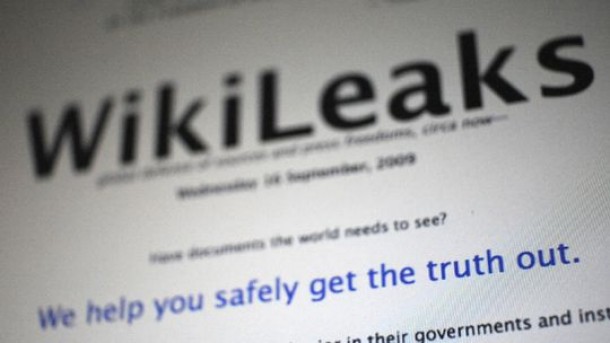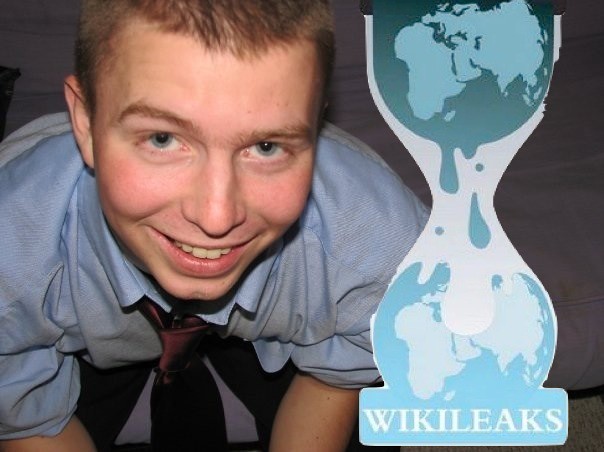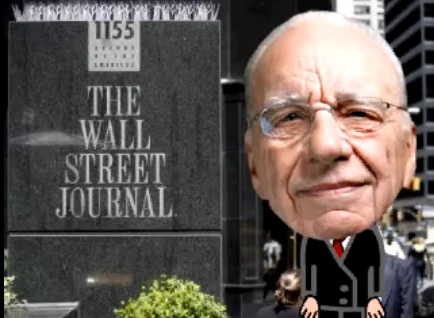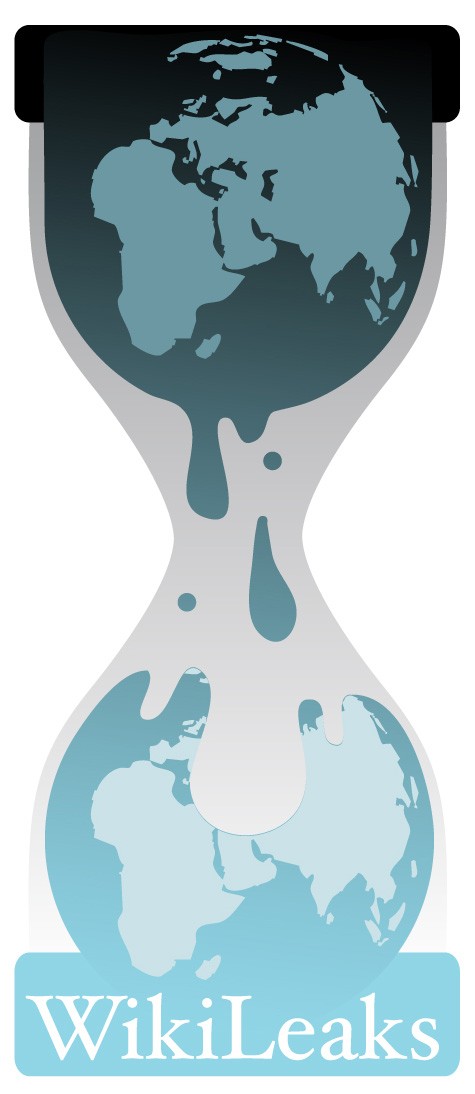“Under this plan, the decoy docs would undermine hackers’ trust in the integrity of data, make them question whether releasing it in the public domain would be worth it, and force WikiLeakers to do more work verifying their authenticity.” - Dawn Lim, ‘Darpa’s Plan to Trap the Next WikiLeaker: Decoy Documents’ Wired, November 4, 2011.
The recent revelations of work by DARPA to plant fake documents in official systems to put off or trick potential whistleblowers and the publishers who work with them is the latest in the US Government’s series of reactions to the work of WikiLeaks, including the recent issue of an Executive Order tightening procedures around the classification of government information, enabling administrators to quickly remove suspected whistleblowers from duty and establishing an Information Security Oversight Office within the National Archives and Records Administration with powers to monitor and enforce the Executive Order’s directives.
There are a number of tactics at work with the DARPA proposal: the identification and monitoring of anyone who accesses the decoy documents, the planting of seeds of uncertainty in the minds of potential whistleblowers as to the authenticity of the documents, and making it more difficult for a publisher to feel confident about the release of the leaked documents while increasing the efforts they need to go to to verify the documents’ authenticity.
Sean Hoare, the reporter who first blew the whistle on News of the World editor Andy Coulson for the publication's phone hacking scandal, was found dead at his home in Watford, England on Monday according to reports in the Guardian and Hollywood Reporter.
The report follows the recent arrest and detainment of former Murdoch chief Rebekah Brooks by British police on charges of conspiring to illegally intercept communications as well as corruption, in the form of bribing police.
According to a report in the Guardian, Hertfordshire police did not confirm Hoare's identity, but stated "At 10.40am today [Monday 18 July] police were called to Langley Road, Watford, following the concerns for the welfare of a man who lives at an address on the street. Upon police and ambulance arrival at a property, the body of a man was found. The man was pronounced dead at the scene shortly after. The statement continues, "The death is currently being treated as unexplained but not thought to be suspicious. Police investigations into this incident are ongoing."
In 2007 Coulson stepped down as News of the World editor, a result of the the phone-hacking scandal. Coulsen then became Prime Minister David Cameron's director of communications that same year.
The News of the World phone hacking scandal involves the alleged industrial scale phone hacking by publications of News International and the collusion and bribery of the Metropolitan Police.
 The past twenty four hours saw some big stories related to WikiLeaks break.
The past twenty four hours saw some big stories related to WikiLeaks break.
-The Grand Jury investigation into WikiLeaks widened as news subpoenas were issued to individuals like David House, co-founder of the Bradley Manning Support Network.
-The US government's case against Thomas Drake totally imploded. He accepted a misdemeanor plea deal and will likely serve no jail time primarily because the government did not want to make its case against Drake with information on classified technology.
-Andy Greenberg of Forbes.com reported on an ACLU lawsuit against the government for not complying with FOIA requests for specific US State Embassy cables
I had Trevor Timm, the person behind the @WLLegal Twitter account, record a podcast to talk about these recent WikiLeaks-related stories.
To listen, click play on the embedded player below (Or, go here to listen and download.)
 This week the program marks the one year anniversary of Bradley Manning's arrest. Joining the weekly podcast is Kevin Zeese, who is a member of the Bradley Manning Support Network Steering Committee.
This week the program marks the one year anniversary of Bradley Manning's arrest. Joining the weekly podcast is Kevin Zeese, who is a member of the Bradley Manning Support Network Steering Committee.
In the past week, there were two documentaries (or films) that went public, which portrayed Bradley Manning. One was the PBS FRONTLINE documentary (which I had much to say about and even went on RT's "The Alyona Show" to discuss). Another was an investigative short film put together by The Guardian. Zeese addresses both of those.
We also discuss how the Bradley Manning case fits into the general war on whistleblowing that the Obama Administration appears to be waging.
This is Part 1. A Part 2 will be posted soon and features more discussion from Pakistan blogger Raza Rumi on the Pakistan Papers.
To listen to the show, click play on the embedded player below. Or, go to CMN News and click "download" or "listen." It will appear at the top of the page or in the list.
PARTIAL TRANSCRIPT ---
GOP Leads Hearing on 'Improving' Whistleblower Provisions in Dodd-Frank Financial Reform Bill
 A hearing titled, “Legislative Proposals to Address the Negative Consequences of the Dodd-Frank Whistleblower Provisions,” was held today. Focused on proposed legislation from Rep. Michael Grimm (R-NY), the hearing looked at how to “improve” the Dodd-Frank Act by “preserving” the internal reporting mechanisms or processes that companies have setup for whistleblowers (e.g. hotlines).
A hearing titled, “Legislative Proposals to Address the Negative Consequences of the Dodd-Frank Whistleblower Provisions,” was held today. Focused on proposed legislation from Rep. Michael Grimm (R-NY), the hearing looked at how to “improve” the Dodd-Frank Act by “preserving” the internal reporting mechanisms or processes that companies have setup for whistleblowers (e.g. hotlines).
Rep. Grimm essentially argued that the changes in Dodd-Frank make it highly likely the “floodgate” will open. Frivolous claims and costly penalties will arise from the fact that whistleblowers are now allowed to go to the SEC before reporting fraud or corruption through a company’s internal reporting system.
Marcia Narine, a witness appearing before the committee on behalf of the US Chamber of Commerce, suggested Dodd-Frank provisions aim to treat all companies like criminals and assume if employees bring a tip documents will begin to be shredded to cover up corruption or fraud. She found this to be unfair and argued that companies are being penalized for not doing their job, for not paying attention to a whistleblower that had information on Bernie Madoff and was ignored.
Kenneth Daly of the National Association of Corporate Directors (NACD) asserted that the provisions in Dodd-Frank change the “emphasis from problem solving to getting paid for problem identification.” What developed later in the hearing was this conventional wisdom that whistleblowers could now be rewarded for malfeasance.
The Financial Services Committee will be holding a hearing on corporate whistleblowing in the next hour. I will be live tweeting the hearing as defending the rights of citizens to engage in whistleblowing is critical to the future of the United States and the world.
The hearing called today is not being called to expand protections for whistleblowers. Rather, it is being called to roll back what little provisions were included in the Dodd-Frank Financial Reform legislation passed last year.
The National Whistleblowers Center describe the proposed improvements in their call to action:
Best described as the Madoff-Enabling Act, the proposed House Republican Amendments to the Securities Exchange Act will --
* Punish employees who disclose violations of the Acts directly to the Securities and Exchange Commission (SEC). It forces whistleblowers to inform corporate wrongdoers that they are violating the law before contacting law enforcement, giving the wrongdoers the opportunity to hide their misconduct from investors.
 Several reports on the web security and privacy of the Wall Street Journal’s new site, SafeHouse, which is inspired by WikiLeaks, have been published. Reactions centered around the “terms and conditions” on the website, which include a disclaimer that SafeHouse “cannot ensure complete anonymity." It also states the leak portal “reserve[s] the right to disclose any information about you to law enforcement authorities or to a requesting third party, without notice, in order to comply with any applicable laws and/or requests under legal process.”
Several reports on the web security and privacy of the Wall Street Journal’s new site, SafeHouse, which is inspired by WikiLeaks, have been published. Reactions centered around the “terms and conditions” on the website, which include a disclaimer that SafeHouse “cannot ensure complete anonymity." It also states the leak portal “reserve[s] the right to disclose any information about you to law enforcement authorities or to a requesting third party, without notice, in order to comply with any applicable laws and/or requests under legal process.”
Web security and privacy experts will continue to scrutinize this new venture. Those like Jacob Appelbaum, a security researcher and senior developer on the Tor online anonymity network will continue to let others know the Journal is being negligent and that this is not a project to be beta-tested on an open Internet. In addition to the security questions, there is the larger question of the Journal’s role in the press and why anyone would ever consider leaking to a newspaper like the Journal.
For establishing a basic understanding of this news organization, this is how SourceWatch, run by the Center for Media and Democracy, characterizes the publication: “The Wall Street Journal, an influential international daily newspaper published in New York City, is owned by News Corporation, which is owned by Rupert Murdoch. It does an abysmal job of informing its readers about climate change.”
 Bradley Manning moving to Fort Leavenworth
Bradley Manning moving to Fort Leavenworth
'US officials' say private Bradley Manning is being moved to Fort Leavenworth in Kansas according to the Associated Press. An announcement is expected tomorrow at the Pentagon. "The officials spoke on condition of anonymity because the move has not yet been made public."
Fort Leavenworth is home to the United States Disciplinary Barracks, the U.S. military's only maximum-security facility, which houses male service members convicted at court-martial for violations of the Uniform Code of Military Justice. According to Wikipedia, only enlisted prisoners with sentences over five years, commissioned officers, and prisoners convicted of offenses related to national security are confined to the USDB. Manning is still awaiting trial. Midwest Joint Regional Correctional Facility, opened October 5, 2010, is also on the Fort Leavenworth site and may be the one Manning is headed to.
Press briefing at the Pentagon contained the following:
 Debate: This House believes whistleblowers make the world a safer place
Debate: This House believes whistleblowers make the world a safer place
On 9 April, the Frontline Club and the New Statesman will host a public debate in which Julian Assange will speak for the proposition "This House believes whistleblowers make the world a safer place."
The debate will be chaired by Jason Cowley, editor of the New Statesman; other panelists have yet to be announced. The event will be held at Kensington Town Hall at 5 pm GMT; it is already fully booked but should be both livetweeted and filmed.
Rob Stary, Australian lawyer for Julian Assange and WikiLeaks: interview
Last week the WikiLeaks Australian Citizens Alliance (WACA) posted the video of an interview they did with Rob Stary, Julian Assange's lawyer in Australia, before the WikiLeaks Free Speech Forum in Melbourne on 4 February.
Some of the interview focuses on legal and political issues particular to Australia. More generally, however, Stary challenges the claims of a number of governments that their legal manoeuvres against Assange and/or WikiLeaks are unaffected by politics. His analysis of the international interplay between law and politics is a fine summary of the state of play so far.
Wednesday's forum on the tribulations surrounding WikiLeaks was timely and a much-needed shot in the arm for political discourse in Australia.
Framed through the lens of Julian Assange and WikiLeaks' David and Goliath struggle against the machine, the dominant theme of the night was the questioning of Australia's political identity and sovereignty in its unbalanced relationship with the United States, and how this imbalance has manifested itself in the lack of political and legal support provided to its citizens. Hence, some parallels between Julian Assange and previous Gitmo detainees David Hicks (present in the audience) and Mamdouh Habib were repeatedly made. On some levels, this may be seen as incongruous - Hicks and Habib were terror suspects, whereas Assange, despite hostile rhetoric, has not been accused of terrorism by a prosecuting authority - but the import of drawing these parallels is the same.
Open to the public, the seats inside Sydney's stately Town Hall filled up quickly, no doubt due to the caliber of the panelists rather than the rain pouring outside. The night's proceedings were emceed by Mark Kostakidis, veteran of Australian public broadcaster SBS. The speakers were the award-winning journalist John Pilger, member for Australian Federal Parliament and famous Iraq war whistleblower Andrew Wilkie, and tireless human-rights campaigner Julian Burnside QC.
Indeed, there were no "hawks" on the panel to provide opposition to the overall theme of libertarianism - not that the audience present minded, for this forum was a chance to escape the endless diatribes of said hawks, who are already in the privileged position of being able to pollute the airwaves, print and the web, stifling such fora under hackneyed pretexts of "national security" (to name but one).
In an interview with the Frankfurter Rundschau today, Guido Strack, EU lawyer and former official of the EU commission at Luxembourg, outlines some of the pitfalls of whistleblowing.
Responding to the question "Stehen Mitarbeiter, die Rechtsbrüche anprangern, am Ende oft alleine da?"(Current employees who stand up against violations of the law often stand alone; why is that?), Strack says:
Viele geben irgendwann auf. Es ist eine enorme Drucksituation. Man findet gravierende Verstöße und weiß, dass das dem Chef nicht passen wird. Was macht man damit? Entweder man geht in die innere Kündigung, geht weg oder man gibt einen Hinweis auf die Missstände. Oft werden diese Menschen dann als zu widerspenstig angesehen und von der Organisation ausgesiebt.
Some give up at some point. There is tremendous pressure in this situation. One finds serious failures and violations of the law and knows that the boss will not address the issues. What does one do in that situation? Either you resign and have nothing to do with the problem or you report the violation. However, the people who report the violations will be regarded as being insubordinate and blacklisted from other organizations.)
Strack expands on the plight of whistleblowers in reply to the question:"Warum sind die Sanktionen gegen Whistleblower oft so heftig?"(Why are the legal consequences / punishments enacted against whistleblowers often so draconian?)
Online whistleblowing conduits appear to be an exciting new trend. From technological tools to what looks a lot like old fashioned investigative journalism, here are some of the up and coming whistle blowing sites.
IndoLeaks Jakarta Globe says this appeared on December 10.
Rospil An extension of popular Russian blogger Alexei Navalny's website, he is actively seeking documentation of corruption in the higher echelons of the national government and economy.
TuniLeaks This seems, at least at present, to serve as a forum to post and discuss Wikileaks state cable releases as they relate to Tunisia, along with the Twitter hashtag #tunileaks . According to Global Voices Advocacy they have been under heavy censorship threats and actions since they were started.
BrusselsLeaks This site is seeking corporation, consultancy, institution or NGO information in "Brussels – the European Capital and the place where decisions are made which impact the globe".
Many of these decisions happen behind closed doors and we have been working to make it more transparent for many years. Journalists, activists and communications professionals have now come together to form Brussels Leaks, a place to centralise intelligence gathered on the inner-workings of the EU.
If you dare to be different, life can be tricky. People try to get hold on one another by power. Thinking on WikiLeaks I see a man or woman leaving home to drive far away. Sitting in front of a computer lightend up by just the computerscreen, doing their tricky thing. Passing through that what should have been kept secret. Their feeling of justice tells them the truth should be freed. Can you imagine the lonely struggle they face? I deeply respect every whistleblower.
Theme by Danetsoft and Danang Probo Sayekti inspired by Maksimer